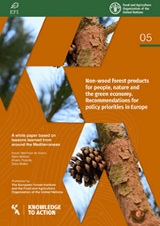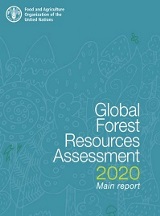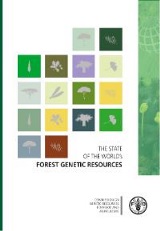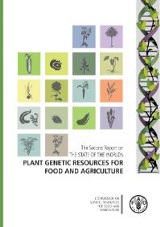Sustainable forest management (SFM) is defined as a “dynamic and evolving concept, which aims to maintain and enhance the economic, social and environmental values of all types of forests, for the benefit of present and future generations.” Forests and trees, when sustainably managed, make vital contributions both to people and to the planet, bolstering livelihoods, providing clean air and water, conserving biodiversity and responding to climate change.
Managing forests’ sustainably means optimizing their benefits, including timber and contributions to food security, to meet society’s needs in a way that conserves and maintains forest ecosystems for the benefit of present and future generations.
Overview and FAO contribution
Through its Forestry Programme, FAO seeks transformational impacts that benefit forests and forest-dependent people and help achieve the 2030 Agenda for Sustainable Development and the Sustainable Development Goals. FAO’s approach balances economic, social and environmental objectives to enable the present generation to benefit from the earth’s forest resources while conserving those resources to meet the needs of future generations.
The Europe and Central Asia region faces multiple challenges in forestry and related fields due to diverse conditions in climate and topography that require tailor-made forest management solutions. In addition, climate change impacts threaten forest ecosystems and the delivery of forest products and services in the entire region, calling for climate-smart forest management approaches. In particular, forest invasive species and forest fires have become issues in many countries in the region in the recent past.
Forest health
A lack of information – and the limited dissemination of what info we do have – hampers efforts to combat forest invasive species in Europe and Central Asia. To fulfill the need for a network through which scientists, managers and policymakers can share information and experiences and coordinate forest invasive species activities and programmes within the region and beyond, the Forest Invasive Species Network for Europe and Central Asia (REUFIS) was created.
Non-wood forest products (NWFP)
Non-wood forest products (NWFP) are often neglected being most of the time a secondary product sourced from the forests. Furthermore many times rural people are collecting and consuming them, thus NWFPs are not entering to any market and therefore vast amount of NWFPs are remaining invisible, and their importance in rural livelihoods is unknown.
Photo story annual meeting of the Forest Invasive Species Network for Europe and Central Asia
Publications

Non-wood forest products for people, nature and the green economy - Knowledge to Action 5
30/09/2020
Martinez de Arano, I, Maltoni S., Picardo A., Mutke S.



News

International network plans action against invasive species in urban forests
14/06/2024

Forests, plastics, and the circular economy
07/07/2022
Links
- Connecting traditional with modern for more resilience and sustainability in agriculture
- REUFIS
- FAO forest health
- FAO sustainable forest management toolkit
- Sustainable forest management (SFM) toolbox
Events
- 29 July 2020 - “Forest invasive species - the next global pandemic?” Webinar in cooperation with FAO headquarters and other regions
- 26 Nov 2020 - “Protecting oak trees for future generations in Europe and Central Asia” (instead of 2020 REUFIS WS/training)
- 24 Nov 2021- “Contingency plans and early warning systems – how can they help protect forests?” (instead of 2021 REUFIS WS) (Passcode: %gn8@&*p)
- 27-30 June 2022- "Annual meeting of the Forest Invasive Species Network for Europe and Central Asia"
Contact
Norbert Winkler-Ráthonyi
Forestry officer
Budapest, Hungary
Kitti Horvath
Forestry specialist
Budapest, Hungary




